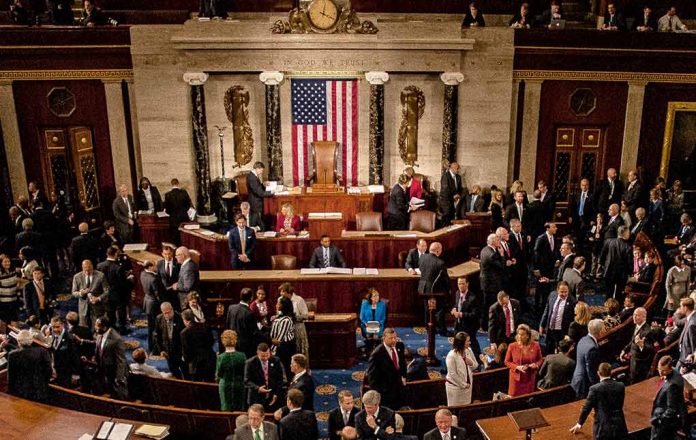
Texas lawmakers have removed longstanding legal protections that allowed school officials to distribute sexually explicit content to minors, potentially exposing educators to criminal prosecution for having inappropriate materials in school libraries.
Key Takeaways
- Senate Bill 412, the first Texas GOP priority bill to reach Governor Abbott this session, removes legal exemptions that shielded school officials from prosecution for distributing harmful material to minors.
- The bipartisan legislation passed the Texas House with a 99-31 vote after previously clearing the Senate, and will take effect September 1, 2025 if signed by the governor.
- House Democrats strongly opposed the bill, claiming it unfairly targets school librarians and constitutes “book banning” that will limit educational resources.
- Republican supporters argue the bill closes a 52-year loophole that allowed inappropriate sexual content to reach children under the guise of “educational purposes.”
- The new law narrows legal exemptions to only law enforcement and judicial officers, removing protections previously extended to educators.
GOP Scores Major Victory Against Inappropriate School Materials
The Texas Legislature has delivered a significant win for parents concerned about explicit content in schools by passing Senate Bill 412, which removes broad exemptions that have long shielded school officials and librarians from prosecution for distributing harmful material to minors. The bill, introduced by State Sen. Mayes Middleton and carried in the House by State Rep. Jared Patterson, represents the first GOP priority legislation to reach Governor Greg Abbott’s desk this session. The measure specifically targets sexually explicit content in school libraries that conservative lawmakers argue has no place in educational settings.
For over five decades, Texas law has provided educators with legal protection when distributing material that would otherwise be considered harmful to minors, as long as it was deemed to have “educational value.” The new legislation dramatically narrows this exemption, reserving such legal defenses primarily for law enforcement and judicial officers. This change has been celebrated by conservatives who have long pushed for stricter oversight of school library materials, especially those containing graphic sexual content that many parents find inappropriate for children.
Democrats Claim Bill Threatens Educational Freedom
House Democrats vehemently opposed the bill during floor debates, arguing it unfairly targets school librarians and constitutes censorship. The most controversial opposition came from State Representative Erin Zwiener, who suggested that students need access to books containing sexual content to understand real-world situations. Her comments have ignited further controversy in the already heated debate over appropriate educational materials in Texas schools.
“Many of the books that get targeted again and again are books that depict sex, and there is nothing I want more than for our young people to be exposed to what sexual assault can look like so they can avoid it,” said Erin Zwiener The Blaze
The bill ultimately passed with a bipartisan vote of 99-31, showing strong support for removing protections that many Republican lawmakers viewed as a dangerous loophole. Supporters of the legislation have repeatedly highlighted examples of sexually explicit materials found in school libraries across Texas, arguing that such content has no place in educational institutions and that those who provide it to children should face legal consequences.
Conservative Champions Celebrate “Long Overdue” Protection
Proponents of the bill, including political commentator Sara Gonzales, have celebrated its passage as a necessary step to protect children from inappropriate materials. Gonzales has been a vocal advocate for removing sexually explicit content from schools, framing the issue as one of basic child protection rather than academic censorship. The Republican Party of Texas and conservative activists have praised the bill as fulfilling a key campaign promise to parents concerned about school content.
“We’re really excited a law protecting children from sexually explicit materials is heading to the governor’s desk. The bill removes any sort of groomer’s defense that they might have in the school system,” said Sara Gonzales The Blaze.
State Representative Mitch Little did not mince words about the bill’s intent, making it clear that the legislation is designed to create real consequences for educators who knowingly expose children to harmful content. His strong statement reflects the position of many conservative Texas lawmakers who believe the existing legal framework provided too much latitude for inappropriate materials to reach students under the guise of educational value.
“Teachers and librarians that intentionally, knowingly, or recklessly expose children to harmful content should be in fear in the State of Texas,” said State Rep. Mitch Little Texas Scorecard.
If signed by Governor Abbott as expected, the law will take effect on September 1, 2025, potentially changing how schools and libraries select materials and raising the stakes for educators who may now face criminal liability for materials deemed harmful to minors. The legislation represents a significant shift in how Texas approaches the balance between educational freedom and parental oversight in public schools.



